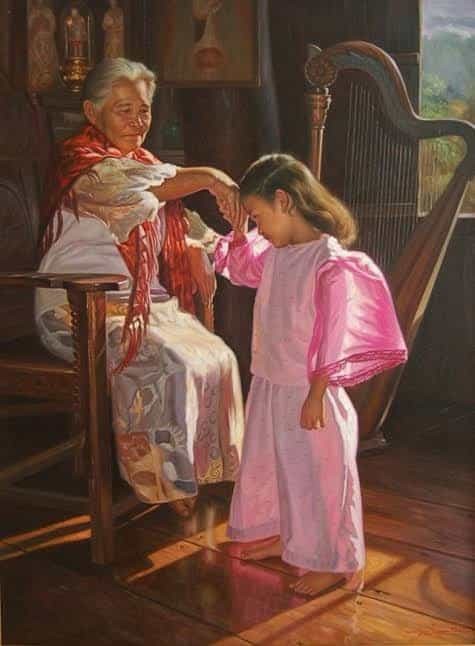(VOVWORLD) - In the Philippines, as in other Southeast Asian countries, paying respect to older people is a tradition passed from generation to generation. In today’s program, we’ll talk to Emmanuel Abalos about “mano” or “pagmamano”, an "honoring gesture" performed in Filipino culture as a sign of respect for an elder and a way of requesting a blessing from the elder.
 Emmanuel Abalos Emmanuel Abalos |
VOV Reporter: Hello, E-Mann. Thank you for joining us today. Could you please briefly introduce yourself so our listeners can get to know you?
E-Mann: Hello, my name is Emmanuel Abalos. I’m 51 years old and I’ve been working for the Kapisanan ng mga Brodkaster ng Pilipinas (KBP) or National Association of the Broadcasters in the Philippines for the past 20 years.
VOV Reporter: Our talk today will center around the Philippines’ “mano” tradition. So what’s mano?
E-Mann: I’ll tell you about our culture of giving respect to our elders: mano or pagmamano. What is mano or pagmamano exactly? Well, it is an honored gesture used by Filipinos and performed as a sign of respect to elders and as a way of requesting a blessing from the elder.
VOV reporter: How and when is “mano” performed?
E-Mann: No other cultures in Asia, in Europe or even in America, perform such a gesture of giving a sign of respect by using mano or pagmamano. Mano or pagmamano is similar to hand-kissing. It’s performed by a person giving the greeting by bowing down toward the person or the elder or taking his hand or her hand and pressing it on the forehead. This is usually performed with the right hand and the person may ask "Mano po" or “Can I have your blessing?” Typically someone may ask for the mano or the honored gesture with an older relative upon entry into their home or upon seeing them. The word “mano” is Spanish for hand, while the word “po” is often used in Filipino culture and language at the end of each sentence as a sign of respect when addressing someone older.
 Mano - a beautiful tradition of the Philippines. Mano - a beautiful tradition of the Philippines. |
VOV Reporter: How has this tradition developed and been preserved in the Philippines?
E-Mann: Well, the Phillipines, which is geographically located in Southeast Asia, was colonized by the Spanish for almost 400 years. The Filipino culture has been heavily influenced by both Eastern and Western customs and traditions. From youth, Filipinos are taught to respect the elders, not only within the family, but those in the community as well, be they strangers or relatives. We Filipinos believe that the elders have earned the respect of the younger generations not only through their age, but through their acquired wisdom and experience. The custom of mano dates to pre-colonial times, and is still followed in countries like Indonesia and Malaysia.
VOV Reporter: What do people, young and old, think about this tradition today?
E-Mann: The mano is still used by people to pay respect to the elderly. However, it’s not really that common any more. It really depends on how the kids are raised. If parents teach their children how to do the mano since they’re one year old, they will definitely remember this sign of respect as they grow older and believe in it and practice it wherever they go.
VOV Reporter: Is there any age limit for practicing “mano”?
E-Mann: Well, there is no age limit for using “the mano” but it is usually practiced on elders by generations much younger than they are. By offering the mano, a person makes himself subservient to the elder and accepts their blessing and wisdom.
In the Philippines, it is considered impolite if one does not perform the custom of pagmamano when entering the home of an elder or upon seeing them at a gathering. We call it rude or “bastos” or ill-mannered.
Respect for elders stems from the importance of family in Filipino culture. Filipinos are loyal to their family, so the elderly live in the homes of their children or grandchildren to be taken care of, and the nursing home business is almost nonexistent in the Philippines. By having the elderly live at home, you are respecting their value in the family.